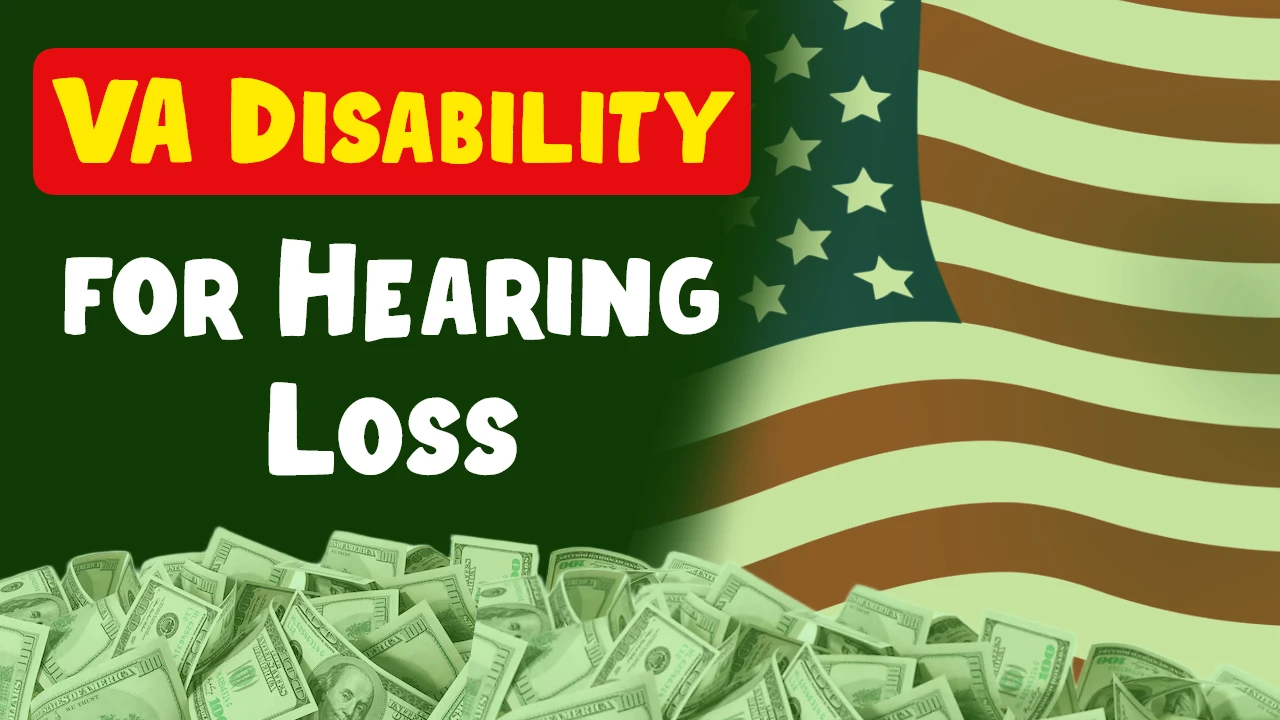One of the most frequent of service-connected disabilities is hearing loss. Many veterans who served in loud conditions like war zones, airfields, or training bases also have experienced long-term hearing loss. The Department of Veterans Affairs (VA) considers hearing loss to be a valid medical issue so you may be eligible to receive disability compensation.
Monthly compensation may be available to you if you suffer, for example, hearing loss, ringing in the ears, or if you wear hearing aids. The VA disability benefits for hearing loss provide financial support for both medical bills and lost wages in the event of hearing issues directly caused by military service.
The effects of hearing loss are determined through a special series of tests used when a veteran claims disability on VA disability. These tests show how bad hearing loss is, and how it affects everyday life. The VA uses a schedule of ratings, which range from 0 percent to 100 percent, to determine how much money they will pay each month.
If the hearing loss is not total, or if it is combined with any other disability, the veteran can still get a rating if the hearing loss interferes with normal interaction, work, or other normal aspects of life.
VA Disability for Hearing Loss
While serving on active duty, service members are often subjected to extremely loud noises without adequate ear protection. Occasionally a single loud blast or heavy assault can permanent damage to one or both ears. The hearing harm can get worse with time. Many veterans don’t even notice how their hearing has changed until they return to civilian life.
They may realize they are increasing the TV volume, asking others to repeat themselves, or mishearing conversations, especially in noisy settings.
VA Disability for Hearing Loss Overview
| Article On | VA Disability for hearing loss |
| Country | USA |
| Department | Department of Veteran Affairs (VA) |
| Eligibility | Must be a military veteran |
| Amount | As per eligibility |
| Payment Mode | Direct Deposits and Paper Checks |
| Payment Schedule | Monthly |
| Category | Government Aid |
| Official Website | Va.gov |
Eligibility for VA Disability for Hearing Loss
- Must be a Military Veteran (active, reserve, guard, and retired).
- Shall provide medical evidence of a hearing loss treated and diagnosed by a licensed physician.
- Show that the hearing loss is related to military service with service records or medical opinions.
- Must have a record of a noise incident or exposure in service that could have caused the hearing loss.
- Claims must be submitted with necessary medical and service documents on VA Form 21-526EZ or through the VA website.
How does the VA Test and Rate for Hearing Loss
To obtain a VA disability rating, you need an official hearing test conducted by a licensed audiologist. The Maryland CNC test analyzes how well a veteran can comprehend spoken words, while the pure tone test evaluates how well they can hear various sound levels.
The tests must be conducted without a hearing aid in place for the results to come out accurately. Following these tests, the results are checked with a table in the rating schedule. The VA follows this chart to couple the veteran’s hearing ability to a percentage rating.
For the majority of veterans, the ratings are relatively low, typically 0%, 10%, or 20% with a higher percentage assigned if the hearing loss is more severe. Even the 0 percent rating is valuable since it acknowledges that the hearing loss is service-related, and the condition can be worse in the future, which may mean more benefits later.
Management Interventions and Support Services
Most hearing-impaired veterans can get hearing aids and care at no cost from the VA health care system. Once a claim is approved, the veteran pays nothing for hearing tests, audiology appointments, hearing aid fittings, and follow-ups. This includes services to help the veterans deal with their condition and develop better communication skills.
The VA also provides counseling and support for veterans who suffer from tinnitus or emotional distress that is brought on by hearing loss. Amplified phones or speech-to-text systems could be helpful for some to mitigate daily activities. There are also vocational rehabilitation programs if hearing impairments are getting in the way of veterans’ work.
Filing a Claim for Hearing Loss as a Disability
Veterans who think they have lost their hearing because of their service should begin by collecting their military and medical records. Those records should contain service details that demonstrate potential noise exposure and any previous complaints or treatment for hearing problems.
This is where the formal hearing tests will occur. The VA, after a required number of days allegedly collects all the necessary info which will then determine whether to either approve or deny the claim and award a rating. The entire process can take anywhere from a few weeks to several months, so it is essential to remain patient and keep track of all of your communication from the VA.
FAQs
Can I receive VA disability compensation for hearing loss and tinnitus at the same time?
Yes, hearing loss and tinnitus can be claimed separately by veterans. The two factors are generally rated separately.
What happens if my hearing loss claim is rejected?
If the VA denies your claim, then you may appeal. This could file new evidence or ask for a hearing test before a Veterans Law Judge.
Do I have to serve in combat to be eligible for hearing loss benefits?
No, you do not need to have combat service. Choose any military setting with high noise exposure, such as airfields, ships, or training ranges.
Will my hearing aid change my VA Rating?
No, the hearing tests are performed to rate your hearing for VA progression/disability is performed absent sound amplification. This way the rating will reflect your unassisted hearing.



